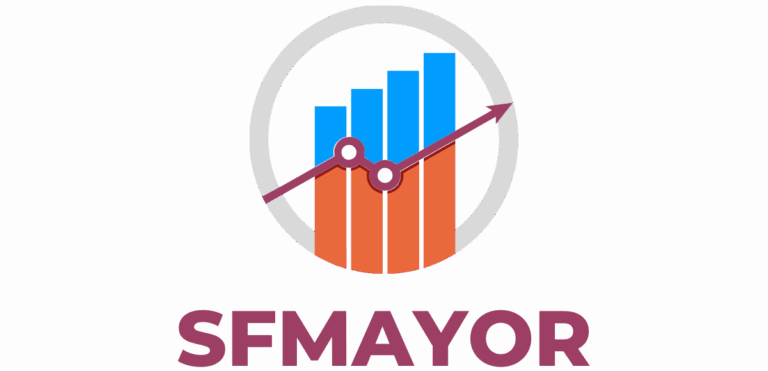In today’s fast-paced work environment, staying ahead isn’t just a goal; it’s a survival tactic. Employees are no longer just clocking in and out; they’re on a quest for growth, skills, and maybe even a corner office with a view. Enter career development tools—the trusty sidekicks in this adventure. Think of them as the Swiss Army knives for professional growth, ready to tackle everything from skill-building to networking.
Table of Contents
ToggleImportance Of Career Development Tools For Employees
Career development tools play a crucial role in employee growth. They enhance skill sets, fostering professional advancement and job satisfaction. Employees benefit from these resources as they provide guidance for navigating career paths.
Clarity on learning opportunities contributes to effective job performance. Tools such as mentorship programs and online courses help employees acquire essential skills. Networking platforms allow individuals to connect with industry leaders, expanding their professional circles.
Access to career assessments aids employees in identifying strengths and areas for improvement. Regular feedback mechanisms encourage continuous learning and adaptation. Engaging with these tools prepares employees for evolving work demands.
Employers gain from investing in development tools as they cultivate a more skilled workforce. Increased employee retention is often linked to growth opportunities. Companies that prioritize these tools experience heightened productivity and innovative thinking.
Using data-driven strategies to implement development programs yields better results. Statistics show that organizations supporting career development witness a 34% increase in employee engagement. Investing in these tools ultimately benefits both employees and employers in a competitive marketplace.
Types Of Career Development Tools

Career development tools come in various forms, each serving distinct purposes. Employees can utilize these resources to enhance their skills and achieve professional goals.
Online Learning Platforms
Online learning platforms provide access to a plethora of courses. These platforms include Coursera, LinkedIn Learning, and Udemy, offering subjects ranging from technical skills to leadership training. Flexibility remains a significant advantage; learners can progress at their own pace. Collaboration features allow employees to interact with peers, enhancing the learning experience. Many organizations invest in subscriptions, ensuring employees receive premium content. Statistics indicate that employees who engage with online learning platforms experience a 34% increase in job satisfaction.
Mentorship Programs
Mentorship programs create invaluable learning opportunities through guidance from seasoned professionals. Participants receive personalized advice tailored to their career aspirations. These programs often foster connections that extend beyond immediate job roles, promoting industry networking. Mentors help mentees navigate challenges, offering perspectives on growth and advancement. Companies supporting mentorship initiatives witness enhanced employee morale and retention rates. Engaging in these programs leads to a more knowledgeable workforce, equipped to tackle evolving workplace demands.
Performance Management Software
Performance management software streamlines employee assessments and development plans. Tools such as BambooHR and Workday facilitate real-time feedback, enabling employees to understand their progress. Regular check-ins promote a culture of continuous improvement and open communication. This software often includes goal-setting features that align individual objectives with organizational priorities. Data demonstrates that firms employing performance management software see a marked improvement in employee engagement and productivity, establishing a clear pathway for career advancement.
Benefits Of Using Career Development Tools
Career development tools enhance employee skill sets and increase job satisfaction. These tools provide resources that empower individuals to refine their expertise and acquire new knowledge.
Enhanced Skills And Knowledge
Enhanced skills and knowledge result from using targeted career development tools. Online learning platforms like Coursera and LinkedIn Learning offer tailored courses that meet diverse employee needs. Employees learn at their own pace, making it easier to balance professional growth with work responsibilities. Performance management software supports this growth by aligning skill development with organizational goals. Mentorship programs provide personalized guidance from experienced professionals, ensuring individuals receive industry-specific insights and advice. Access to these resources equips employees with the tools they need to advance their careers effectively.
Improved Employee Engagement
Improved employee engagement often occurs when organizations invest in career development tools. Employees who feel supported in their career growth exhibit higher levels of motivation and morale. Organizations that support career development experience a 34% increase in employee engagement. Regular feedback mechanisms, integrated into development programs, encourage open communication and foster a culture of learning. Utilizing networking platforms enhances connections with industry leaders, creating opportunities for collaboration and growth. These factors contribute to creating a work environment where employees feel valued and invested in their professional journey.
Best Practices For Implementing Career Development Tools
Successful implementation of career development tools requires careful planning and strategy. Assessing employee needs stands as the first essential step for effective career development.
Assessing Employee Needs
Identifying the specific needs of employees ensures that career development tools align with their aspirations. Surveys and one-on-one discussions help gather valuable insights. Employers can tailor training programs based on discovered skill gaps and career goals. Utilizing performance data highlights areas where employees may require additional support. Prioritizing feedback creates a culture of open communication, making employees feel heard and engaged. Companies that accurately assess needs boost employee satisfaction and engagement, leading to a 34% increase in motivation among supported employees.
Providing Continuous Support
Maintaining ongoing support for employees enhances the effectiveness of career development tools. Regular check-ins allow managers to monitor progress and adjust strategies as necessary. Workshops and coaching sessions provide additional learning opportunities, catering to evolving employee interests. Fostering mentorship pairings brings experienced individuals into direct contact with those seeking guidance, promoting a collaborative environment. By offering continuous resources, organizations cultivate a culture of growth, empowering employees to pursue their professional journeys confidently. This uninterrupted support reinforces commitment and keeps employee engagement levels high.
Career development tools are essential for fostering a culture of growth and engagement in the workplace. By providing employees with access to resources like online courses and mentorship programs, organizations empower their workforce to enhance skills and pursue career advancement. This investment not only boosts employee satisfaction but also drives productivity and innovation within the company.
As the job market evolves, staying ahead requires a proactive approach to career development. Employers who prioritize these tools create an environment where employees feel valued and motivated. Ultimately, the strategic implementation of career development resources leads to a more skilled and engaged workforce, benefiting both employees and the organization as a whole.




